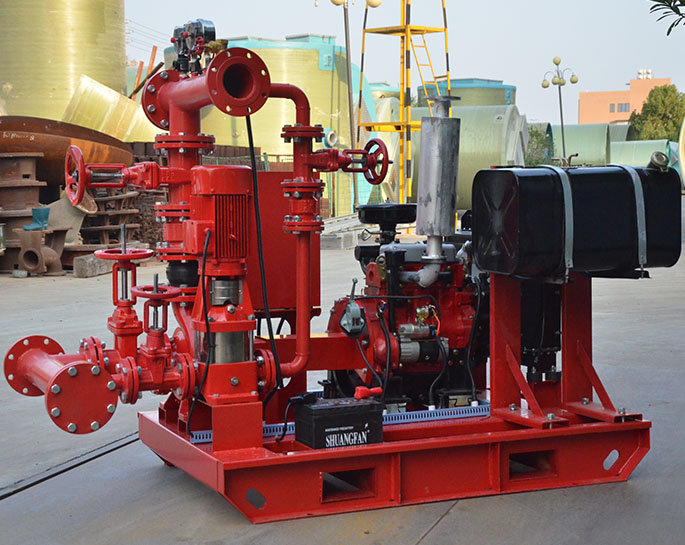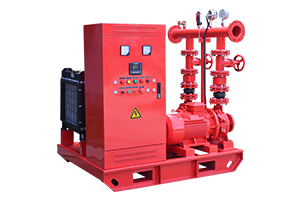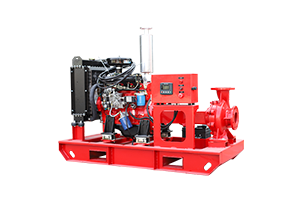Cause Analysis of Diesel Engine Fire Pump Vibration
Vibration in a diesel engine fire pump can result from various factors. Identifying the cause of vibration is crucial as excessive or uncontrolled vibration can lead to equipment damage, decreased efficiency, and potential safety hazards. Here are some potential causes of vibration in a diesel engine fire pump:
-
Imbalance: An imbalance in rotating components such as the engine crankshaft, fan, or pump impeller can lead to uneven forces during operation, causing vibration. Imbalances might arise due to manufacturing defects, wear and tear, or improper maintenance.
-
Misalignment: Misalignment between the engine, pump, and other components can cause excessive vibration. Incorrect alignment puts additional stress on the bearings, shafts, and couplings, leading to increased vibration levels.
-
Worn or Damaged Bearings: Bearings that are worn out or damaged can result in uneven movement and generate vibration. This can be due to lack of lubrication, contamination, or normal wear over time.
-
Loose Fasteners: Loose bolts, nuts, or other fasteners connecting various components of the engine and pump can lead to vibrations as the parts move slightly out of position during operation.
-
Harmonic Resonance: If the natural frequency of the engine or pump coincides with the operating speed, harmonic resonance can occur, leading to amplified vibrations. This is more likely when the equipment has been modified or is operating at a different speed than originally designed.
-
Mechanical Wear: Wear and tear of components over time can lead to an increase in vibration levels. This could include worn belts, gears, or other moving parts.
-
Cavitation: In a pump, cavitation occurs when the pump's impeller generates low-pressure areas that cause vapor bubbles to form and collapse in the fluid. This can lead to increased vibration and potential damage to the impeller.
-
Fluid Imbalance: Irregular flow of fluid through the pump due to blockages, obstructions, or improper suction conditions can cause vibrations. Uneven flow distribution can lead to unbalanced forces within the pump.
-
Excessive Load: Operating the pump beyond its design capacity or pushing it to work under extreme conditions can result in increased vibration due to the added stress on components.
-
Structural Issues: Weaknesses or defects in the foundation, mounting, or support structure of the engine and pump can amplify vibrations, leading to resonances.
-
Combustion Issues: Diesel engines with combustion irregularities or issues with fuel injection timing can generate uneven forces during the combustion cycle, contributing to vibrations.
To identify the specific cause of vibration in a diesel engine fire pump, a comprehensive inspection and analysis are necessary. This might involve visual inspection, vibration analysis using specialized equipment, checking alignment, examining components for wear and damage, and reviewing maintenance records. Once the cause is identified, appropriate corrective actions can be taken, such as balancing rotating parts, aligning components, replacing worn bearings, and addressing other issues. Regular maintenance and monitoring are essential to prevent vibration-related problems and ensure the optimal performance and safety of the equipment.







